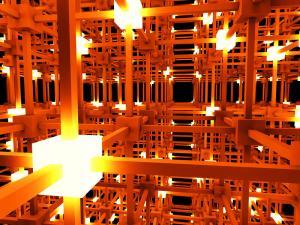Microgrids begin to make economic sense.
Michael T. Burr is Fortnightly’s editor-in-chief. Email him at burr@pur.com.
My friend Reggie believes the world is coming to an end.

No, he didn’t fall for that Mayan calendar nonsense. He’s a rational person, but he watches the news with an eye out for the endgame; he expects a global economic collapse, caused by the mounting global debt load. That is, if the world isn’t first devastated by nuclear war, sparked by religious jihad. And failing that, there’s a whole menu of natural disasters waiting to strike the planet, including wayward comets, solar flares, or a magnetic polar shift.
The point is, he expects the end of civilization as we know it, and every day the news seems to confirm his suspicions. From Superstorm Sandy to the fiscal cliff, the world seems to be falling apart—and Reggie is preparing for the end. He’s assembled a bug-out kit, with food, water, and survival gear for several days. He owns multiple firearms and stocks plenty of ammo. His plan is to get his family out of the suburbs as quickly as possible, so they can reach their cabin in Minnesota’s north woods. There, he reasons, they can hunker down and stay safe until the worst is over. Or they can just build a new life, far away from the zombie hordes.

